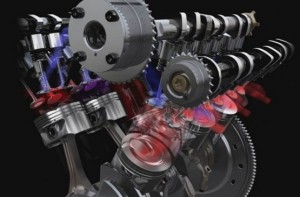Ford Motor Company has been making news recently with its announcement that using ethanol in its “Eco-Boost” engines can increase fuel economy. The system which is known as Direct Injection Octane Boost, has the potential to increase fuel economy between five to 10 percent. The improved fuel economy is realized by injecting a quick burst of ethanol into the combustion chamber prior to a regular injection of unleaded gasoline. Ford is already working on its second generation Eco-Boost V6 engines.

It appears that the technology will debut in the U.S. market in the Lincoln MKS. This technology is one of a kind and Ford has filed documents with the Department of Energy confirming that their “Bobcat” V8 engines will be brought to market in the F-truck series range.
The technology was developed in conjunction with Ethanol Boosting Systems and capitalizes on ethanol’s higher octane rating to improve power and fuel economy. This is similar to a driver of a flex-fuel vehicle who is burning E85 getting a power boost when stepping on the accelerating.
The system uses to separate tanks, one for ethanol and one for gasoline but according to company sources the ethanol tank will only require periodic filling due to the small amount of ethanol used.
While better fuel economy is always a benefit, especially with the volatility of gas prices, there is a drawback–the car sporting the Eco-Boost technology still uses gas as its primary fuel.

